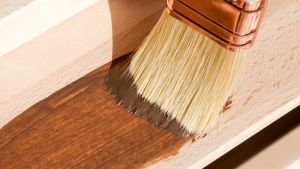
A cost-effective substitution for TPGDA and TMPTA
Discover cost-effective alternatives to TPGDA and TMPTA for UV coatings, offering savings of up to 18% while enhancing yellowing resistance and ensuring a safer working environment.

In simple terms, silica is a product of two natural ingredients, sand and water. Specifically, colloidal silicas are suspensions of fine amorphous, nonporous, and typically spherical silica particles in a liquid phase.
The surface of colloidal silica in contact with water is covered by siloxane bonds (≡Si–O–Si≡) and silanol groups (≡Si–OH).
This makes colloidal silica very hydrophilic and capable of forming numerous hydrogen bonds. Allowing you to meet and stay ahead of regulations while offering your customers benefits such as a more attractive look and smoother surfaces as well as weather resistance and better durability.
Colloidal Silica is a truly versatile component that expands possibilities for businesses. Looking to incorporate it into your coatings? Contact us at sales@maha.asia to find out more!

Discover cost-effective alternatives to TPGDA and TMPTA for UV coatings, offering savings of up to 18% while enhancing yellowing resistance and ensuring a safer working environment.

Find out how Maha Chemicals Asia could help on extending the Pot Life of Epoxy Coatings!

Isocyanates are a family of highly reactive, low molecular weight chemicals. They are widely used in the manufacture of coatings such as paints and varnishes, and elastomers, and are increasingly used in the automobile industry, autobody repair, and building insulation materials. Spray-on polyurethane products containing isocyanates have been developed for a wide range of retail, commercial, and industrial uses to protect concrete, wood, plastics, and metals.
Copyright © 2023 Maha Chemicals (Asia) Pte Ltd